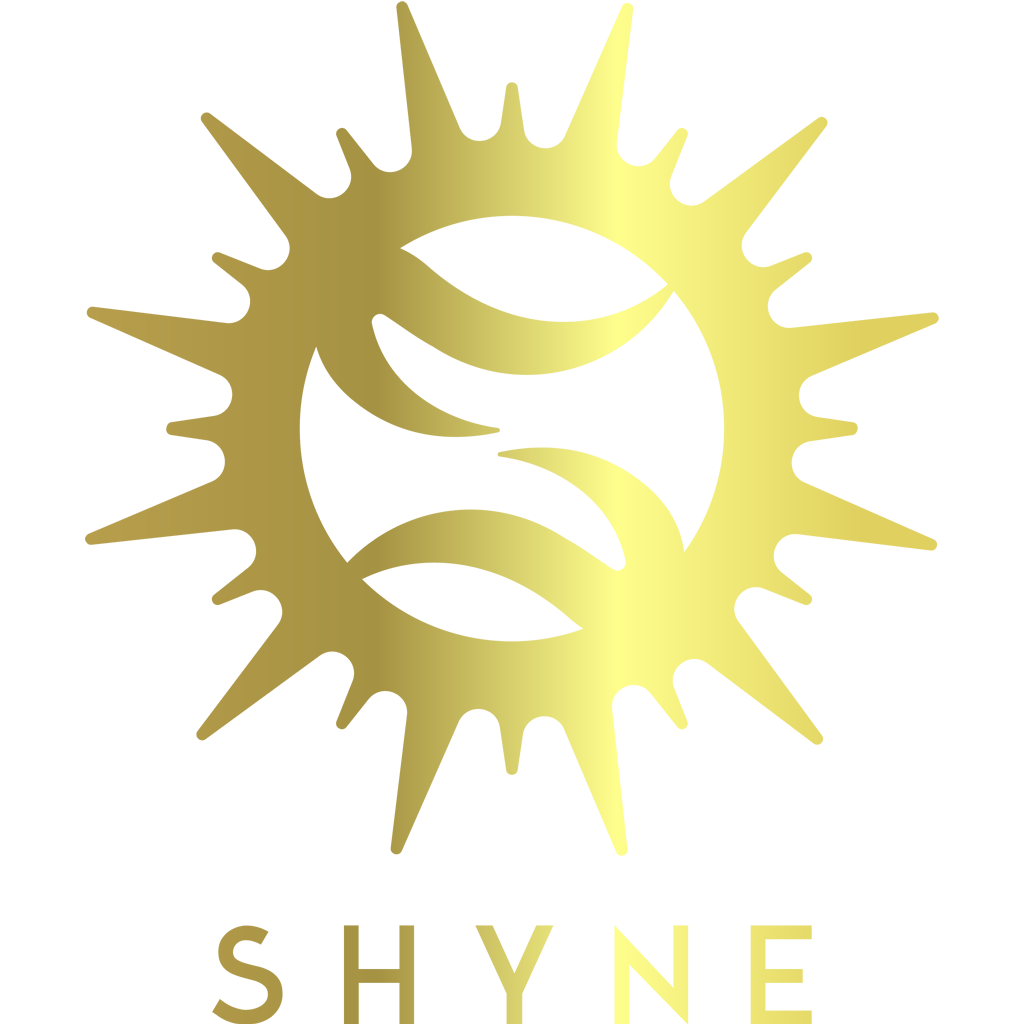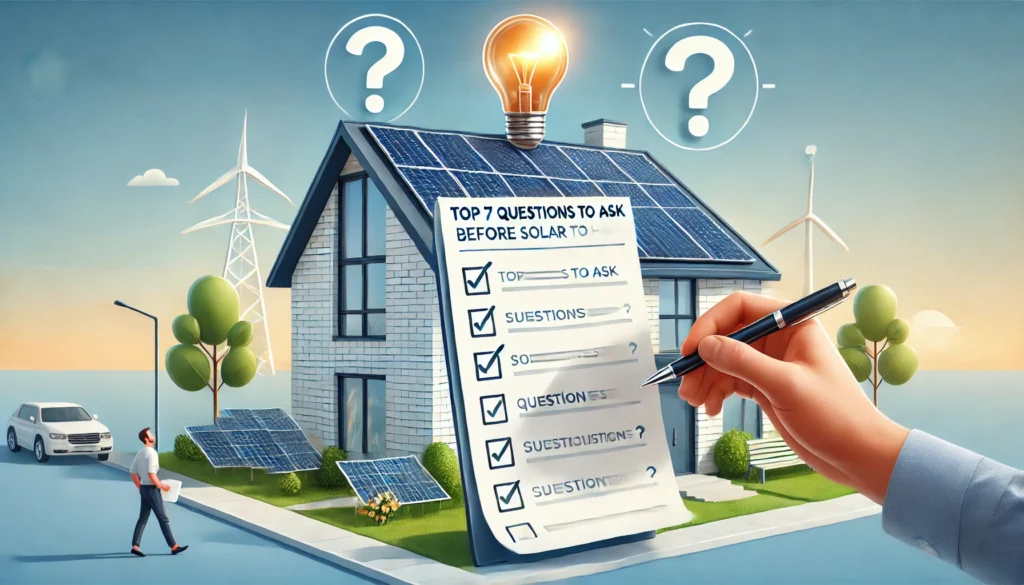Top 7 Questions to Ask Before Installing Solar Panels on Your Home
Installing solar panels on your home is a significant investment that can bring substantial financial and environmental benefits. However, to ensure that you make the best decision for your needs, it’s essential to ask the right questions before committing to a solar installation. In this article, we’ll cover the top seven questions you should ask before installing solar panels on your home, helping you to navigate the process with confidence.
- What Are My Home’s Energy Needs?
Understanding your current and future energy needs is crucial when considering a solar panel installation.
- Evaluate Your Energy Consumption: Review your electricity bills over the past year to determine your average monthly usage. This will help you gauge how much energy you use and how much you’d like your solar system to produce.
- Consider Future Changes: Think about any future changes that may increase or decrease your energy usage, such as adding new appliances, installing a home office, or planning a home addition.
Knowing your energy needs will help you determine the size and capacity of the solar panel system required to meet your goals.
- Is My Roof Suitable for Solar Panels?
Not all roofs are ideal for solar panel installation, so it’s important to assess your roof’s suitability.
- Roof Orientation and Angle: South-facing roofs typically receive the most sunlight in the United States, making them ideal for solar panels. Additionally, a roof angle between 15 and 40 degrees is generally optimal for solar energy capture.
- Age and Condition of the Roof: If your roof is nearing the end of its lifespan or has structural issues, it may need repairs or replacement before installing solar panels. Consider the cost and logistics of this additional work.
- Shading Issues: Check for potential shading from trees, nearby buildings, or other obstructions that could reduce the efficiency of your solar panels.
Consult with a solar professional who can evaluate your roof’s specific characteristics to determine its suitability for solar installation.
- What Are the Costs and Financing Options?
Understanding the costs associated with solar installation and available financing options is vital to making an informed decision.
- Upfront Costs: Solar installation costs can vary based on the size of the system, equipment used, and installation complexity. Get a detailed quote that breaks down all the costs, including panels, inverters, mounting hardware, and labor.
- Financing Options: Explore financing options like solar loans, leases, or power purchase agreements (PPAs). Each option has different terms, costs, and potential savings.
- Incentives and Tax Credits: Research available federal, state, and local incentives, rebates, and tax credits that can significantly reduce your upfront costs. For example, the Federal Investment Tax Credit (ITC) can provide a significant deduction on your tax bill.
Knowing your financial options will help you decide how to fund your solar installation most effectively.
- What Is the Payback Period?
The payback period is the time it takes for your solar panels to generate enough savings on your electricity bills to cover the initial cost of the installation.
- Factors Affecting Payback Period: The payback period depends on factors like the cost of your solar system, your energy usage, local electricity rates, and available incentives.
- Typical Payback Periods: Most homeowners in the U.S. see a payback period of 6 to 10 years, depending on their location and energy consumption.
Understanding the payback period will help you gauge how quickly you can expect a return on your investment.
- What Type of Solar Panels Should I Choose?
There are different types of solar panels, each with its own advantages and disadvantages.
- Monocrystalline Panels: These panels are known for their high efficiency and sleek appearance. They are ideal for homes with limited roof space but are typically more expensive.
- Polycrystalline Panels: These panels are less efficient than monocrystalline but are more affordable, making them a good choice if you have ample roof space.
- Thin-Film Panels: Lightweight and flexible, thin-film panels are suitable for unconventional roof types, but they are less efficient and generally require more space.
Ask your installer which type of panel is best suited for your home, budget, and energy goals.
- How Will I Benefit from Net Metering?
Net metering is a billing mechanism that credits solar panel owners for the electricity they add to the grid.
- Understand Your Utility’s Net Metering Policy: Check with your local utility company to understand their net metering policy, including how excess energy is credited to your account and at what rate.
- Maximize Savings: With net metering, you can maximize savings by producing more electricity than you consume and earning credits that offset your future electricity costs.
Knowing the specifics of net metering in your area will help you better estimate your potential savings and ROI.
- What Warranty and Maintenance Should I Expect?
Solar panels come with different warranties, and understanding the coverage is essential.
- Panel Warranty: Most solar panels come with a 25-year warranty covering their performance and efficiency. Make sure you understand what the warranty includes and how to claim it if necessary.
- Inverter Warranty: The inverter, a crucial component that converts solar energy into usable electricity, typically has a shorter warranty (around 10 to 15 years). Know the terms and any options for extended coverage.
- Maintenance Requirements: Ask about the maintenance required to keep your solar panels operating at peak efficiency. While solar panels are generally low-maintenance, occasional cleaning and inspections may be necessary.
Clarifying these details will help you understand the long-term reliability and upkeep of your solar system.
Conclusion
Installing solar panels is a fantastic way to reduce your energy bills, increase your home’s value, and contribute to a sustainable future. However, asking the right questions before installation is crucial to making a sound investment. By evaluating your energy needs, understanding costs, assessing your roof’s suitability, and considering the benefits of net metering, you can make an informed decision and enjoy the maximum benefits from your solar panel system.
Shyne specializes in installing and financing solar panels, making the transition to solar energy seamless for homeowners. Our team of experts ensures that each installation is optimized for maximum efficiency and savings.
Shyne is your trusted partner for solar panel installation and financing in Oklahoma. Get a free quote today! Contact Us
Ready to make the switch?
Contact us today to learn how solar panels can help you save more in the long run!
Complete Residential Solar Panels and Systems. Serving Texas, Oklahoma, Kansas, Missouri, Utah, Florida & Ohio
Get a Free Quote Now
